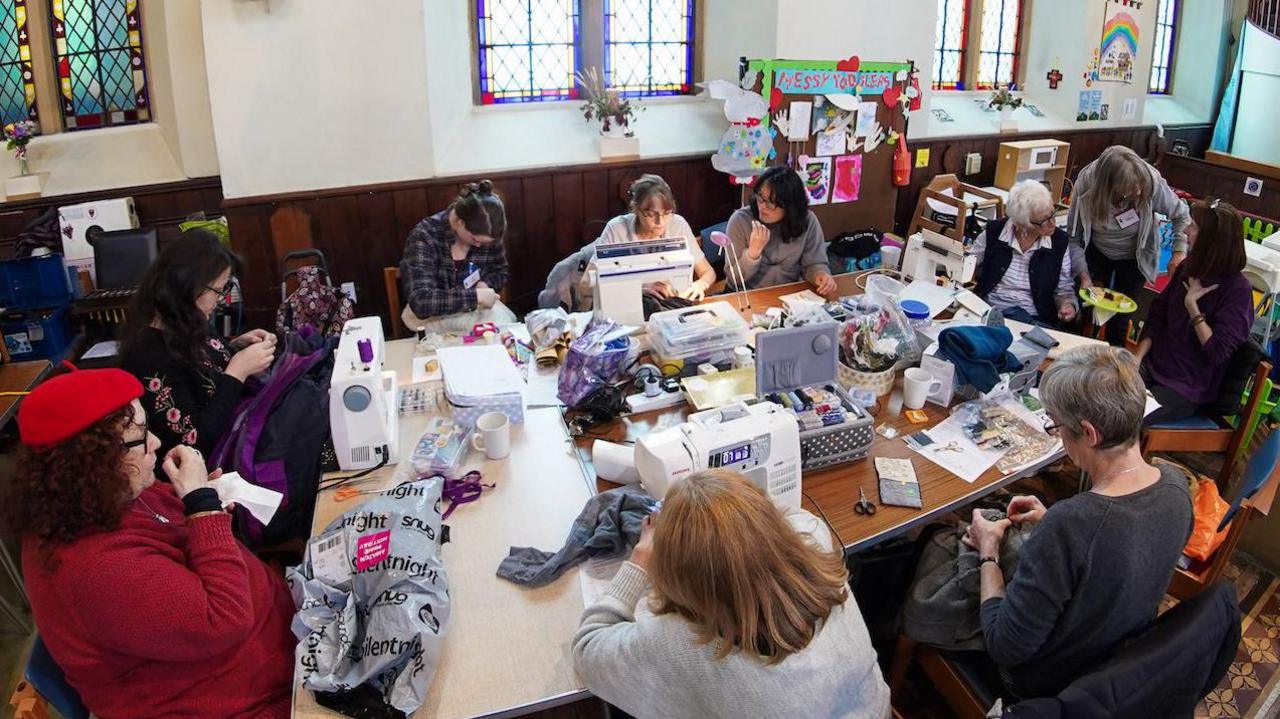Are Britons losing their DIY mojo?
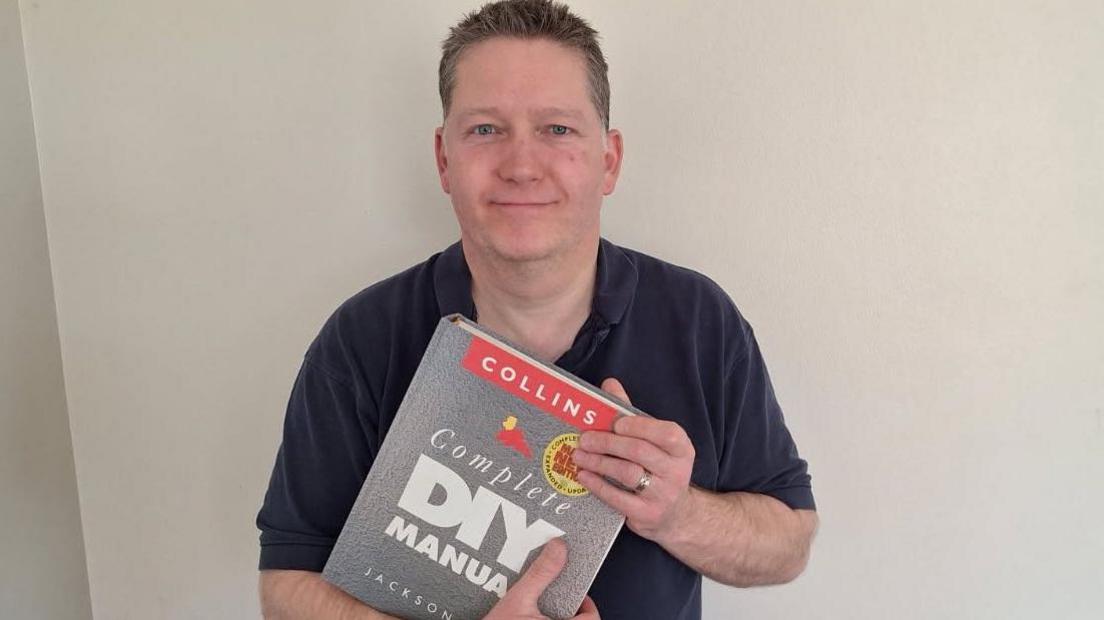
Handyman Simon King says people are losing the ability to carry out even the most basic of tasks
- Published
Are Britons losing their ability to mend, preferring instead to call in a professional at the first sight of a blown fuse? BBC News takes a dive into the issue.
Handyman Simon King makes an interesting point, as he holds his well-thumbed copy of Collins Complete DIY Manual, acquired when he bought his first house 30 years ago: "You don't see comedies on the TV poking fun at DIY mishaps these days, do you?"
If sitcoms loosely mirror life, it is perhaps no wonder that the likes of hapless DIYer Frank Spencer, played by Michael Crawford, no longer draw in prime time audiences.
After all, there is not much comedy gold in a professional fixing a kitchen tap without causing a biblical flood, or putting up a shelf - and it staying attached to the wall.
"People just aren't doing as much DIY," reports Mr King, offering a view from the coalface.

Michael Crawford's character Frank Spencer entertained viewers with his tales of DIY woe
Matt Walton, senior analyst at Globaldata, a company that provides insights on various industries, including retail, agrees.
He believes the boom period of DIY, seen during the Covid pandemic, has "been and gone".
"When people were furloughed they had time on their hands to do jobs around the house," he says. "But we've moved on."
Mr Walton cites difficulties in getting on the housing ladder as another reason for the DIY malaise.
He says: "We have a lot of people in Britain in rental accommodation. In many cases, they are not permitted to carry out work on properties themselves.
"I also think these skills are just not being passed down to younger generations, as they once were."
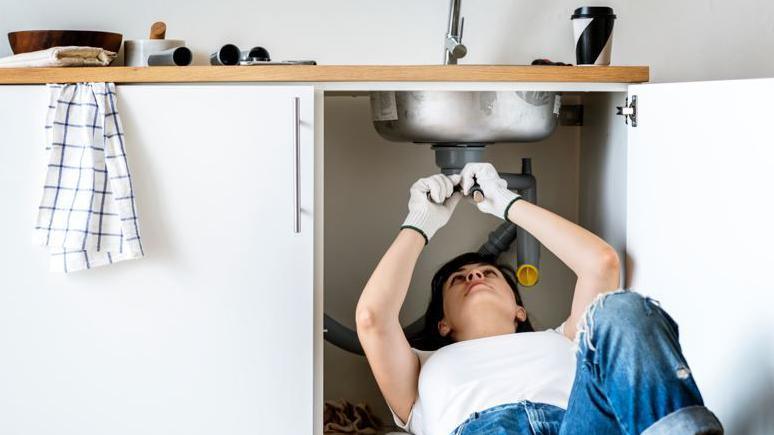
Fewer people are attempting DIY jobs around the house, it is claimed
Mr King, 55, who operates out of Lincoln, thinks Britain has lost its "make do and mend" culture.
"My dad was from that era... and I think most people from his generation would at least have had a go at stuff, which is where a lot of the comedy stuff came from when it went wrong."
Mr King recalls taking TVs apart "just to see how they worked", before screwing them back together.
"These days, though, they're not designed to be taken apart and there's not really much you can do to repair them without the right diagnostic equipment."
Many of his customers are homeowners without the skills, confidence, time, or frankly, the inclination, to attempt even the most basic of DIY tasks, he reports.
"Lots of people call me just to put a picture up on the wall. My son said to me once, 'Dad, I can't believe people actually pay you just to do that'."
Mr King still refers to his trusty manual.
"I got it when I bought my first house," he says. "I didn't have the money to spend on hiring someone to do the work so I had to learn to do it myself."
He believes people changing lifestyles has led to a general malaise for DIY home improvements.
"If you're working that hard, you don't want to spend your weekend doing DIY jobs," says Mr King. "So people will ring up a local handyman instead."
But while Mr King is happy with the status quo - it is keeping him in work - in East Yorkshire, Alan Dalgairns and his Hull Repair Cafe are working on a fix.
Here, people can bring in items, which would ordinarily be thrown out, to be fixed - for free - by experienced DIYers. A charge is only applied for parts needed to carry out repairs.
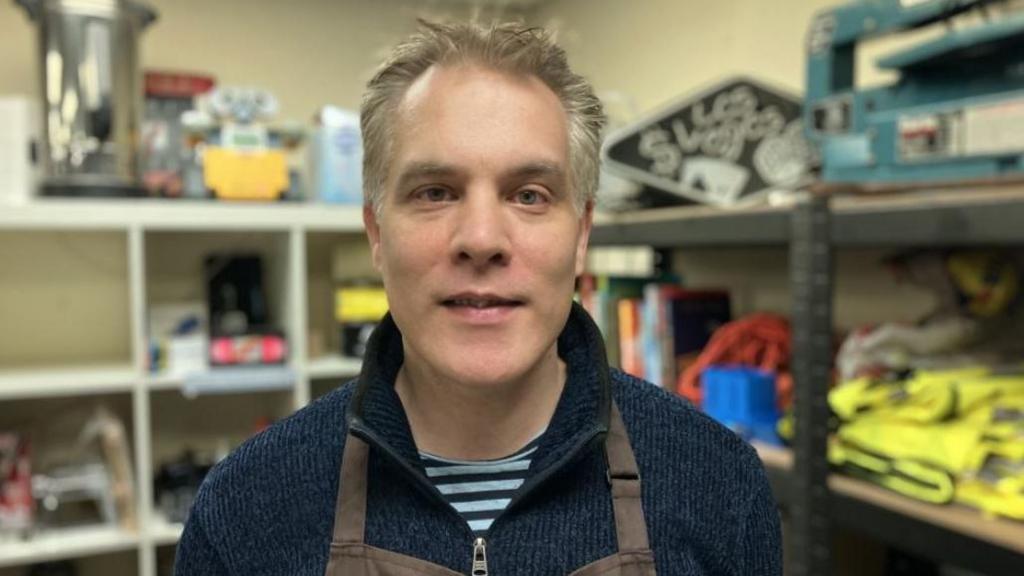
Alan Dalgairns fears younger Britons are not learning basic DIY skills
"People will sit with our repairers while the work is carried out, in the hope that next time they might feel confident to have a go themselves," says Mr Dalgairns, 51.
He also thinks skills are not being passed down family lines.
Alongside the cafe, Mr Dalgairns runs Hull Library of Stuff, which loans - for a nominal fee - items ranging from extension ladders to angle grinders and chisel sets.
"A lot of younger ones who come in to borrow equipment don't have a clue how it works," he says. "I'll then spend time showing them how to use the item properly and safely."
"I think we are losing those basic skills, and I think it's because younger generations are not seeing their parents carrying out these type of jobs.
"I am a dad to a 10-year-old who watches me repair stuff but we're probably in a minority.
"I'm very much of the mindset what if something is broken, what is the worst that can happen?"
He recalls watching his parents "mend and make things".
"I remember coming home from school one day and finding a new chair. My mum had made it from an old bed. My dad would do all the repairs around the house."
Mr Dalgairns believes many young people today "don't have a clue what's inside products".
He says: "They think stuff works using black magic. But what they don't seem to get is that a lot of time something stops working because of something really simple. That's especially true when it comes to sound systems, for example."
Mr Dalgairns says some young people are turning to social platforms like YouTube for instructional videos "usually recorded by older people who know what they're doing".
Kids' club
But he believes nothing beats learning practical skills, hands on, from someone experienced.
"That's why we have set up a kids' club, encouraging children to get under the hood and take things apart," he says.
Mr Dalgairns explains the organisation has teamed up with Dove House, a local hospice, which runs a re-use shop at a council-run household recycling centre.
He says they get electrical items that no longer work and encourage children to take them apart and "examine the various components".
The club is on a hiatus at the moment, says Mr Dalgairns. "We're confident it'll return next year."
Listen to highlights from Hull and East Yorkshire on BBC Sounds, watch the latest episode of Look North or tell us about a story you think we should be covering here, external.
Related topics
- Published20 March
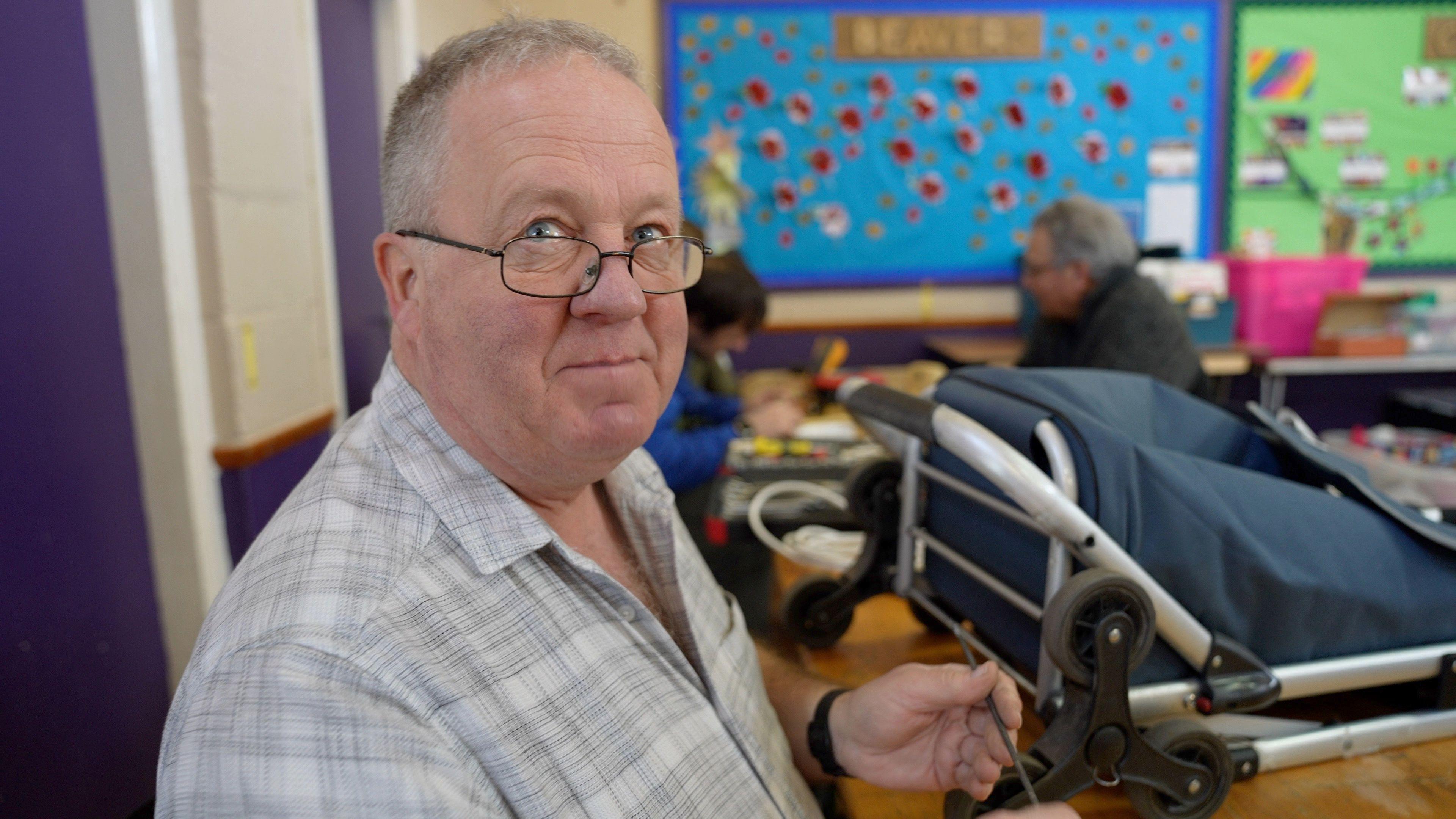
- Published3 March
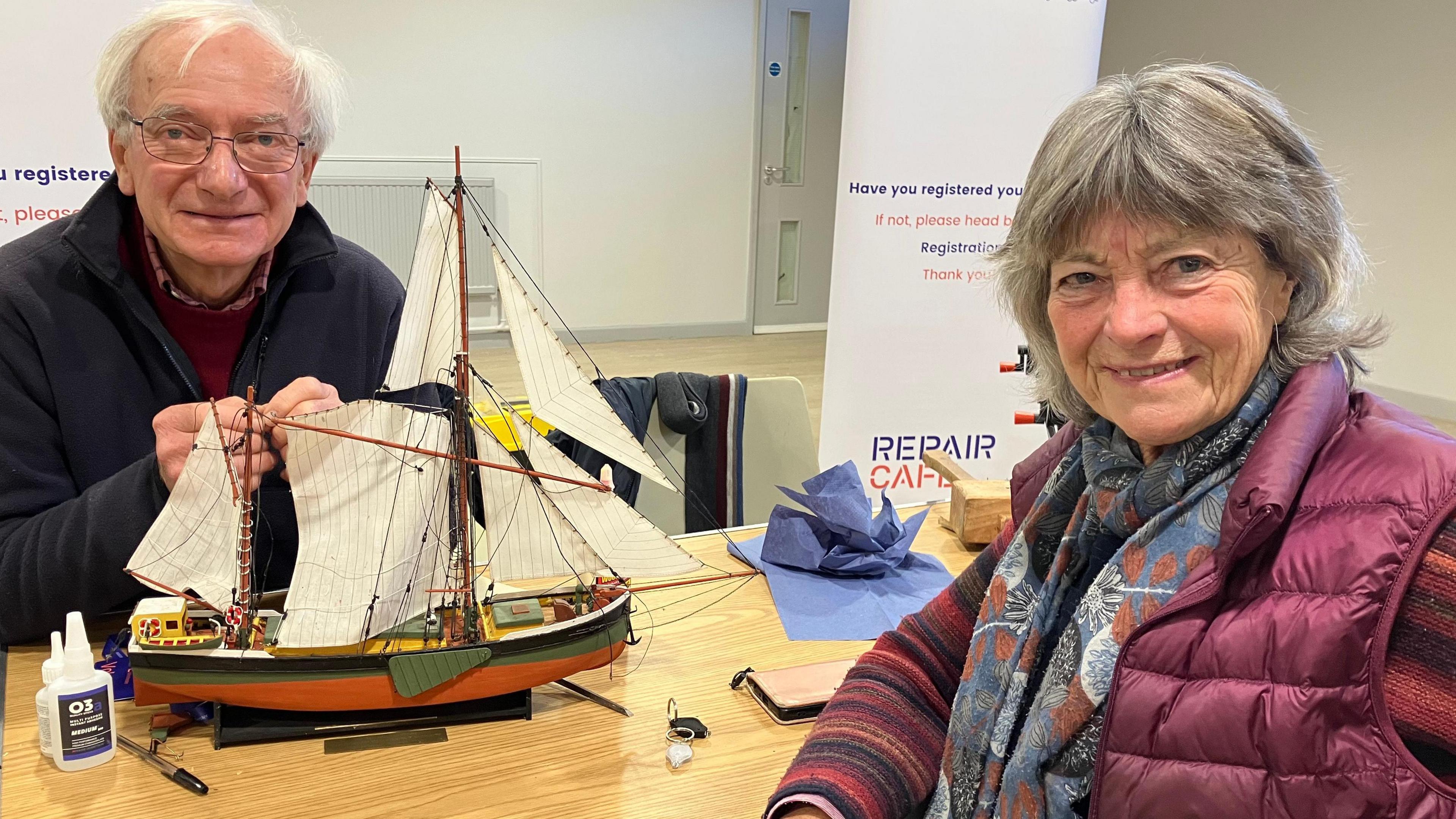
- Published12 February 2023
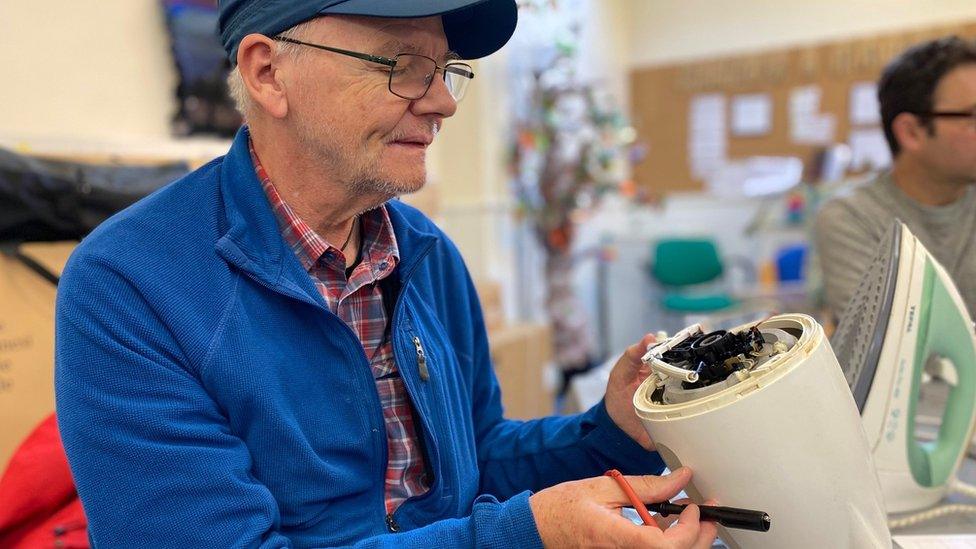
- Published8 March
